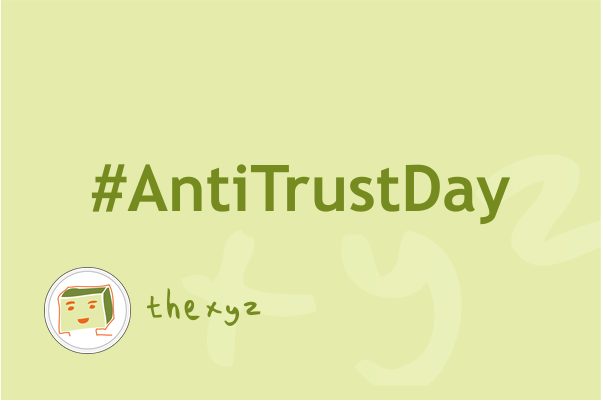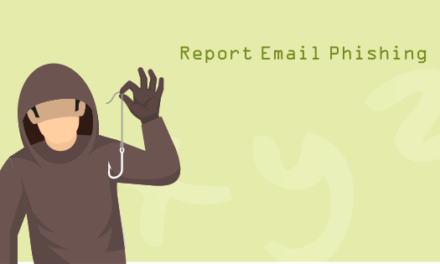Today businesses, civil society organizations, (including Thexyz), and everyday internet users are uniting for Antitrust Day. The coalition, led by Fight for the Future, is a group of nonprofits, tech companies, and internet users are uniting in calling on Congress to end tech monopolies.
Companies like Facebook, Google, Apple, and Amazon control a huge portion of the internet and the technology we use every day. These companies abuse their gatekeeper status to undermine human rights, distort democracy, exploit our personal data, censor content, and stifle competition. The #AntiTrustDay group is also condemning tech giants such as Amazon and Google for reportedly running fake grassroots campaigns that claim to have the support of small businesses to oppose the bills.
Now, Congress is considering a slate of antitrust legislation targeting these major tech companies, and two of them are actually building momentum. The Open Apps Market Act would end Google and Apple’s chokehold on mobile applications, giving consumers more control over their own devices. The American Innovation and Choice Online Act would, among other regulations, ban Big Tech from preferring or promoting its own products, an activity that serves only to solidify their market power
Our current relationship with technology is dangerous and unsustainable, but we can’t begin to restructure it without strong antitrust reform. There isn’t a single silver bullet that will solve the harms of Big Tech, but antitrust legislation is a key part of the puzzle. The truth is that this could be Congress’s only meaningful shot at addressing Big Tech monopolies, and we can’t let them waste it. It’s time for us to take back control of our digital lives.
Summary of the Bills
The American Innovation and Choice Online Act (AICOA, H.R. 3816, S. 2992)
AICOA, also known as “the self preferencing bill” – would stop the biggest tech companies (companies over a $550B market cap, e.g. Google, Apple, Microsoft, Amazon and Facebook) from preferencing their own products in search results and defaults, and from using data generated by competitors’ use of their products to build competing products. It would also make it easier for Federal agencies and State Attorneys General to bring antitrust cases against the biggest tech companies.
The Open App Markets Act (OAMA, H.R. 5017, S. 2710)
OAMA – also known as “the App Store bill” – would stop big tech companies that provide hardware or operating systems for general-purpose computers from using app stores to abuse their market power. It only applies to app stores with over 50 million US users (currently, Apple and Google) and it would require these companies to let their users install apps directly, choose alternative app stores, uninstall pre-packaged apps, and change the default apps. It would also require them to make the APIs they offer to their own products available to other app developers, so that their operating systems can’t give special advantages to their own apps, over apps offered by competitors.
#AntiTrustDay on social media…
More competition in tech is good. If you're in the U.S., today we're working with a group of smaller companies to urge people to call Congress to support The American Innovation and Choice Online Act. More info & 1-click call here: https://t.co/MinR4NgShI #AntiTrustDay https://t.co/dxWPejKgUt
— DuckDuckGo (@DuckDuckGo) April 4, 2022
Antitrust day is a good day https://t.co/tco94DKQtI
— Tim Wu (@superwuster) April 4, 2022
Do not trust Mark Zuckerberg.
Do not trust Jeff Bezos.
Do not trust Tim Cook.
Do not trust Sundar Pichai.
Do not trust Big Tech.Break them up. Regulate them. Hold them accountable. #AntiTrustDay
— Public Citizen (@Public_Citizen) April 4, 2022
Today is #AntitrustDay, and nonprofits, tech companies, and internet users are uniting in calling on Congress to end Big Tech’s abusive monopolies. We can’t restructure our relationship with tech until we have antitrust laws. Contact lawmakers now. https://t.co/L6xgGjIKE6
— Fight for the Future (@fightfortheftr) April 4, 2022
Curious Penguins are also in support of #AntiTrustDay
Support the Open App Markets Act and the American Innovation and Choice Online Act now https://t.co/LSWrKahr7o
— CuriousPenguinsNFT (@CuriousPenguins) April 4, 2022
SPOTTED: Antitrust reform is coming to Capitol Hill — thanks to the over 100 grassroots organizations and businesses uniting for #AntitrustDay and greater oversight of #BigTech. pic.twitter.com/Y1FmwtHYBN
— The Tech Oversight Project (@Tech_Oversight) April 4, 2022
It is #AntiTrustDay today – we want thousands of tech firms (and web3 DAO's) all thriving instead of 5 big tech companies and 12 layers of 50,000 employees with centralized top-down control.
The way to preserve this is by preserving interoperability and competition for upstarts. pic.twitter.com/bsQtouFedF
— Garry Tan 陈嘉兴 (@garrytan) April 4, 2022
Congress is considering 2 antitrust bills that will give power back to internet users. Tell Congress to stand up to tech monopolies, support the Open App Markets Act and the American Innovation and Choice Online Act! #AntitrustDay https://t.co/ZPqUKcxEqy pic.twitter.com/6DK7X8rKtA
— Teamsters (@Teamsters) April 4, 2022
Today is #AntitrustDay, YMOZ and other organizations are uniting in calling on Congress to end dominant tech companies’ abusive monopolies. We can’t restructure our relationship with tech until we have antitrust laws. Contact lawmakers now. https://t.co/3zeGlNXowM pic.twitter.com/YcVLCWjT25
— ymoz (@whymoz) April 4, 2022
Great blog post from @thexyz about why #antitrustday is important, and what the bills #OAMA and #AICOA do! https://t.co/m0ynsqfiVr
— Fight for the Future (@fightfortheftr) April 4, 2022
Organizations in support of the AntiTrust Bills
- Automattic
- Basecamp
- Brave Software
- Coalition for App Fairness
- Disconnect, Inc.
- DuckDuckGo
- Efani Secure Mobile
- Fathom Analytics
- fuboTV
- Function X
- Kelkoo Group
- Libro.fm
- LI Toy & Game
- Malloc Inc.
- Match Group
- Mio
- Neeva
- Presearch
- Proton AG
- Sonos
- SparkToro
- Spotify
- StartMail
- Thexyz
- Tinder
-
-
-
- YMOZ
-








Great to see small tech services come together to take on big tech!
Great initiative!
Fantastic effort
I am happy to have found some decent options for using open-source software over Big Tech in the last couple of years. I think it is great you bring attention to such matters and also to alternative, open-source software too.